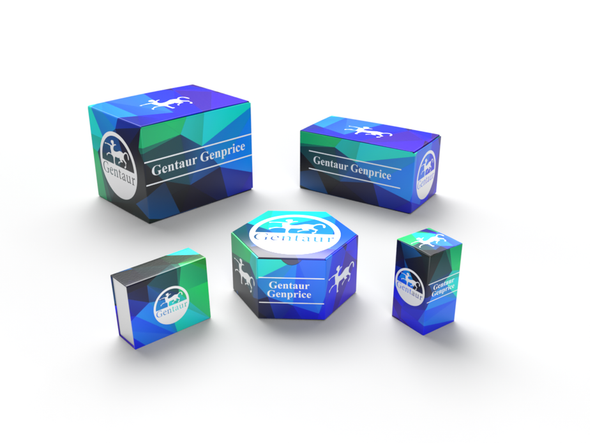Description
SLC30A8 Antibody | 8485 | Gentaur UK, US & Europe Distribution
Host: Rabbit
Reactivity: Human
Homology: N/A
Immunogen: SLC30A8 antibody was raised against a peptide corresponding to 14 amino acids near the amino terminus of human SLC30A8.
Research Area: Homeostasis
Tested Application: E, WB, IHC-P, IF
Application: SLC30A8 antibody can be used for Western blot at 1 - 2 μg/mL. Antibody can also be used for Immunohistochemistry starting at 10 μg/mL. For immunofluorescence start at 20 μg/mL.
Antibody validated: Western Blot in human samples; Immunohistochemistry in human samples and Immunofluorescence in human samples. All other applications and species not yet tested.
Specificiy: Two isoforms of SLC30A8 are known to exist; this antibody will detect both isoforms. This SLC30A8 antibody is predicted to not cross-react with other members of the SLC30 protein family.
Positive Control 1: Cat. No. 1307 - Human Pancreas Tissue Lysate
Positive Control 2: N/A
Positive Control 3: N/A
Positive Control 4: N/A
Positive Control 5: N/A
Positive Control 6: N/A
Molecular Weight: Predicted: 35, 41 kDa
Observed: 35, 41 kDa
Validation: N/A
Isoform: N/A
Purification: SLC30A8 Antibody is affinity chromatography purified via peptide column.
Clonality: Polyclonal
Clone: N/A
Isotype: IgG
Conjugate: Unconjugated
Physical State: Liquid
Buffer: SLC30A8 Antibody is supplied in PBS containing 0.02% sodium azide.
Concentration: 1 mg/mL
Storage Condition: SLC30A8 antibody can be stored at 4˚C for three months and -20˚C, stable for up to one year. As with all antibodies care should be taken to avoid repeated freeze thaw cycles. Antibodies should not be exposed to prolonged high temperatures.
Alternate Name: SLC30A8 Antibody: Solute carrier family 30 member 8, zinc transporter 8, ZNT8, Zn-T8
User Note: Optimal dilutions for each application to be determined by the researcher.
BACKGROUND: SLC30A8 Antibody: SLC30A8 is a zinc efflux transporter involved in the accumulation of zinc in intracellular vesicles and is expressed at a high level in the pancreas, particularly in islets of Langerhans, and co-localizes with insulin in the secretory pathway granules of the insulin-secreting INS-1 cells (1) . Allelic variants of SLC30A8 have been identified as major genetic risk factors for the development of Type 2 diabetes (2) , but no genetic association has been found with Type 1 diabetes (3) . SLC30A8 expression in -cells was found to be influenced by cytokine expression, particularly IFN-gamma and IL-1beta (4) .






